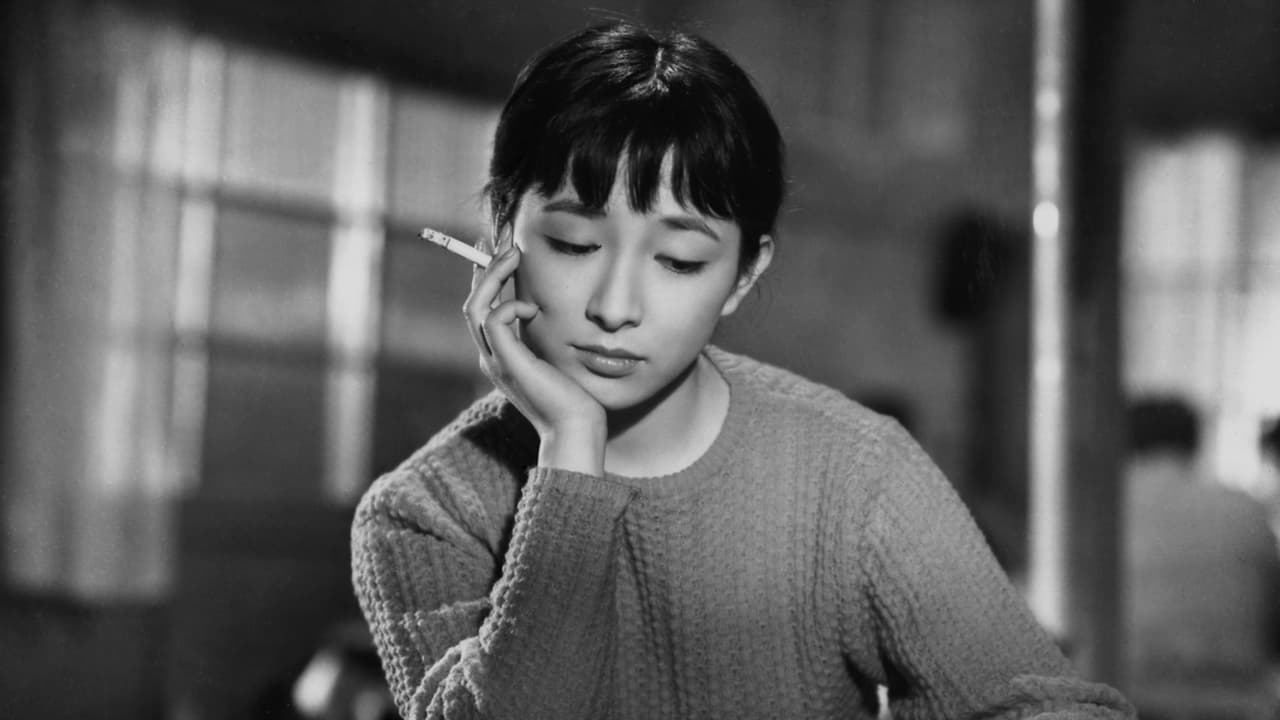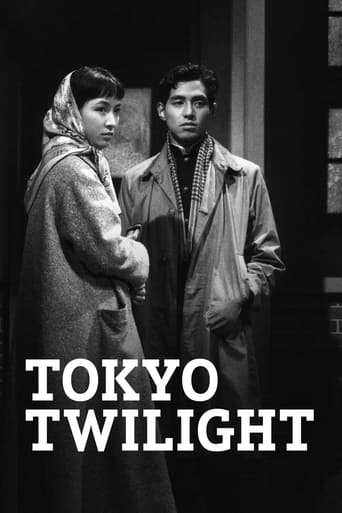




Let's be realistic.
At first rather annoying in its heavy emphasis on reenactments, this movie ultimately proves fascinating, simply because the complicated, highly dramatic tale it tells still almost defies belief.
View MoreIt really made me laugh, but for some moments I was tearing up because I could relate so much.
View MoreClose shines in drama with strong language, adult themes.
View MoreI was speaking with my cigar-smoking buddy about John Ford/John Wayne/Maureen O'Hara movies -- we always watch THE QUIET MAN on Saint Patrick's Day. "Why does Wayne bother to tame her," he asked, "When he's going to have to do it all over again the next movie?" I've never been able to convince him of it, but I think the journey can be more fun than the destination. That's the thought that occurred to me when I looked at this movie this morning and saw Ozu's stock company running through variations on their unhappy yet loyal relationships to each other: Chishû Ryû as the father who tried his best and failed; Setsuko Hara as the seemingly obedient daughter, and so forth; the middle class home; the little bar around the corner from the office. It's all there and all as familiar as the nail's level view -- a bent-down nail, because the nail that sticks up gets hammered down.We're told that Ozu is very Japanese and I wouldn't understand, but I find his world very familiar, even if everyone speaks Japanese. Growing up, I didn't understand Yiddish -- I still don't -- but my parents and uncles and aunts did and held conversation in it when they didn't want us to understand. Sometimes the discussions would escalate to shouting, and when I would ask what was going on, I would be told "You wouldn't understand." So that's what Ozu seems like to me: the same people, the same problems, the same language so I wouldn't understand -- but with subtitles. With the same cast, just like my family. As Wayne said to Howard Hawks on another occasion, this time, can I play the drunk?
View MoreA fairly dark story for Ozu, but you know what? I think that shows Ozu can do just a little different than what everyone expects of him. The ingredients of this stuff isn't just melodrama, it's soap opera - disappointed father, absentee mother, an abortion, and a closed off young woman who doesn't know what to do with herself, certainly not around the deadbeat man in her life. But it's how Ozu goes about - I felt deeply for this family since it builds from a place that just feels real - and awkward in its reality. I think in many of Ozu's films the kind of nice-ness people have to one another (I don't know if this is just in Japan or just elsewhere) is a cover for what they really think and feel.A lot of what is in the early parts of Ozu films are mundane, just pleasantries, making tea, talking some minor gossip or 'how was your day' stuff. But then it goes into some areas that are much darker, or just can't be seen by the surface of the rituals of Japanese familial ties and relations. And in this film Ozu really made it a point that this family is torn by secrets and lies, and it's so under the surface that it becomes palpable. And there's a noirish quality here that works interestingly, as the sister Akika stews away with her secret in a bar, and doesn't even know the bigger secret about her birthright (and a tinny song Ozu plays often in the film, even in the most tragic scenes, adds a whole other level of the familiar but sadness).I was touched by Tokyo Twilight, and it wasn't a sudden effect - it came over me gradually, like an old friend coming by and then finding out through a long and staggering conversation what hard times there have been. It's tragedy in full dimensions
View MoreTokyo in the mid 1950s. In this stereotypical women's picture, a single, middle aged man (Chishu Ryu, an Ozu regular), tries against all odds to raise his two grown troubled daughters. One (the great Setsuko Hara, another Ozu regular) is a single mother who has left her husband and return to his father's home. The younger daughter is even more troubled, is surrounded by bad companies, and has become pregnant by her no good boyfriend. Soon, the two sisters find in a mahjong joint their long lost mother, who seems curiously unmoved at learning that her son has died years ago in a climbing accident. The sloppy plot hurts the movie a lot (only in bad melodramas, one of the characters commits suicide by throwing herself under a train, but doesn't die until she tells her story). To its credit, though, this film tackles the issue of abortion decades before western films did, but this is still minor Ozu, somewhat moving, but done in by its unnecessary melodrama and its barely believable plot points. There are many movies Ozu made during this era - from Tokyo Story, Floating Weeds, Early Summer, Late Spring, Good Morning, End of Summer, etc., that are better than this. Still, worth seeing if you are not expecting a masterpiece.
View MoreA deeply, uncharacteristically dark film, even among other "dark" Ozu films (i.e. A HEN IN THE WIND, EARLY SPRING) that may require a theatrical setting for the viewer to be fully absorbed in the strange, dark textures of the world Ozu presents. I myself was pretty alienated for the first 1/2 hour or so until the wintry chill of the mise-en-scene (brilliantly suggested in the slightly hunched-over postures of the characters) found its way into me instead of keeping me at arm's length. And from there this story builds in unwavering intensity as it follows a family on a slow slide into dissolution: a passive, judgmental patriarch (played by Chisyu Ryu, subverting his gently accepting persona in a way that is shocking), his elder daughter, a divorcee with a single child (Setsuko Hara, playing brilliantly against type -- who'd have thought the sweetest lady in '50s Japan had such an evil scowl?), and his younger daughter (Ineko Arima, a revelation), secretly pregnant and searching for her boyfriend, get a major shakeup when their absent mother, who the father had told them was long dead, re-enters their lives. Ozu's vision of post-war Japan and how the sins of one generation get passed on to the next, illustrated brilliantly by a series of parallels drawn sensitively between characters, manages to be both compassionate and scathing -- even a seemingly cop-out happy denouement is embedded with a poison pill. A masterpiece, without question, one that throws all of Ozu's depictions of modern society in a beautifully devastating new light.
View More